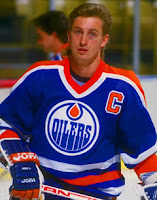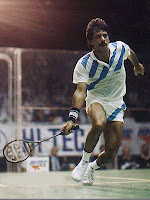First, the Star Wars failure of remaking the original trilogy and revamping it into a supposedly new film, called The Force Awakens, which as I have stated and proven before, is nothing but a rebooted and redefined unimaginative version of the original trilogy.
And now, we face the same issues with The Peanuts Movie
 |
| Oh my... what has Hollywood done this time... |
.
I'm really sorry because, fact of the matter is, I take issue because Peanuts is my favorite cartoon. So this time, Hollywood has crossed the line!
I skipped this movie on its release because after watching the trailer, I immediately knew it was going to be nothing but a rebooted and redefined unimaginative version that collected the most well-known jokes of the original Peanuts Specials. I finally watched it a couple of nights ago, and it turned out to be exactly what I had predicted.
Let me start by saying that, just like The Force Awakens, The Peanuts Movie IS a good movie. That is if, and ONLY IF you remove it from the Peanuts universe (or context, for that matter). Meaning, if you somehow magically have all your Peanuts/Charlie Brown/Snoopy memories erased from your brain (kind of like that Eternal Sunshine of the Spotless Mind film), there would be a definitive lauded appreciation for the movie. It's funny, it's witty, it's romantic... it's a good kids film for adults. But... the thing is... like it happened with TFA, the Peanuts Movie features and uses, well, how can I put this... well, the SAME Peanuts characters and jokes we've known all our lives.
 |
| See? The same joke told 40 year ago |
Original Peanuts Specials were ahead of their time. You never knew what would come next out of their mouths, as jokes were very VERY subtle and sometimes even over the tone of a PG film. Of course, Schulz and Melendez knew how to get away with that. I'll never forget an episode in which Sally and Charlie Brown are walking home together from a school day, and Sally tells her older brother that the teacher sent her to the principal's office because she complained too loudly during class about the difficulty of the assigned homework, which included an unheard of task of drawing a farm, to which Sally defied the entire classroom to "draw a good cow leg". At one point in the conversation with Charlie Brown, Sally says: "So I got sent to the principal's office because I couldn't draw a cow's leg. I'll bet Picasso couldn't draw a cow's leg when he was in the first grade. I'll even bet Bjorn Borg couldn't draw a cow's leg!"
If that isn't subtle joke telling, I don't know what is.
MINOR SPOILERS FOLLOW:
The movie begins with the Linus and Lucy theme. Ok, fair enough, I can live with that. But then it keeps refurbishing the same and same and same and same old peanuts' jokes:
Charlie Brown being incapable of flying a kite
Pig Pen being, well, Pig Pen
Lucy taking Linus' blanket
Shroeder playing Beethoven's 5th
Patty and Marcy
Lucy as psychiatrist... and STILL charging 5 cents
and of course, the biggest insult of them all to all Peanuts fans... The Little Red Haired Girl!
The list goes on and on and on.
You know what would have been really funny and respectful for true fans? Let's take for instance the Lucy Psychiatric help joke. It would have been REALLY funny, if say Lucy charged 5 Dollars instead of 5 Cents, then have Charlie Brown say something like "whoa, last time I was here you charged 5 cents!" and then have Lucy complain or maybe say something about inflation since the last time Charlie Brown visited her, and then have Charlie Brown glance himself in disbelief and have no choice but to deposit a $5 bill in Lucy's can, and have Lucy say something like "I love the sound of Lincoln's, Lincoln's, Lincoln's!!" Of course, the bill wouldn't make any sound because it's paper, but THAT's the way Peanuts' jokes work! They are subtle!
I mean, when you watch this film as a Peanut lover, you cannot get past the reality that every single joke (or scene) in the film, is something you already saw and comes from a past Peanuts film. It's like the director or the script writer said, "ok, we have to make a Charlie Brown film. Let's take the most classic jokes, put them inside a blender and whatever comes out, that's our film!"
 |
| Sigh... they even re-used this one |
Don't get me wrong. I'm ok with re-using jokes. But not ALL jokes for Pete's sake! Let's take for instance an original Peanuts special. As I write this I just picked one randomly: Bon Voyage Charlie Brown.
In Bon Voyage Charlie Brown, we see Charlie Brown, Linus, Patty and Marcie, flying to Paris as exchange students. Somehow, Snoopy and Woodstock not only manage to join them, but they also somehow become the leaders of the trip. I mean come on, Snoopy flies on first class, he's the one who rents the car, he plays a match at Wimbledon's Centre Court, he goes out partying and drinking at night and he manages to save the Chateau from a fire. In this film, not once, not ONE time do we see Charlie Brown flying a kite, PigPen being PigPen (with the exception of the farewell at the airport), Lucy working as a psychiatrist, Snoopy dogfigthing the Red Baron... and so on. Think about it: Bon Voyage only features four of the main characters (plus Snoopy and Woodstock), yet it's still a very good movie!
In Bon Voyage Charlie Brown, we see Charlie Brown, Linus, Patty and Marcie, flying to Paris as exchange students. Somehow, Snoopy and Woodstock not only manage to join them, but they also somehow become the leaders of the trip. I mean come on, Snoopy flies on first class, he's the one who rents the car, he plays a match at Wimbledon's Centre Court, he goes out partying and drinking at night and he manages to save the Chateau from a fire. In this film, not once, not ONE time do we see Charlie Brown flying a kite, PigPen being PigPen (with the exception of the farewell at the airport), Lucy working as a psychiatrist, Snoopy dogfigthing the Red Baron... and so on. Think about it: Bon Voyage only features four of the main characters (plus Snoopy and Woodstock), yet it's still a very good movie!
I rate all Peanuts specials highly, and Bon Voyage is among the top 5 in my book. Why? Because it's an original film. Humour doesn't come from old refurbished jokes, but instead it comes from the absurdity of seeing infancy being lived as adulthood. Think about it: Charlie Brown and his gang, let Snoopy not only rent, but drive a car in a foreign country! To add more to the absurdity, he causes a major traffic accident by making a complete stop at a highway the second he leaves the rental dealership. He even gets road rage, flees the scene and the gang doesn't feel the slightest contempt for the affected drivers. It doesn't get more bizarre than that!
To this day, I watch this scene and find myself replaying it dozens of times.
THAT is Peanuts' humour. NOT refurbished jokes.
Let's pick another one, the one most people regard as the best one. Charlie Brown Christmas. Peanuts fans know and are ok, with Lucy sitting on Shroeder's piano. This is like a classic must scene of peanuts, similar to Southpark having the four boys on the bus stop. The beauty of this sequence is that regardless of the context Lucy and Shroeder are in, the specials always manage to do something different in the interaction. Like on this scene:
We know Schroeder ALWAYS plays Beethoven when he sits on the piano and Lucy hates that. But what happens when he plays something different?
THAT is Peanuts' humour. NOT refurbished jokes.
Even the Saturday morning Peanuts offered original jokes, despite not being as top quality as the specials. Take for instance this Peppermint Patty + Charlie Brown interaction:
Another fine mess you got me into Chuck!
THAT is Peanuts' humour. NOT refurbished jokes.
I also couldn't get why did Snoopy need a narrator most of the time he was onscreen. Since when does Snoopy need a narrator? Did the director forget that Sometimes Peanuts don't even need to speak to deliver a timeless classic joke because the jokes come from the subtle context where they are set, as in this scene from the Thanksgiving Special:
Snoopy fighting a beach chair
Or in this one, where Snoopy gets drunk on Root Beer. THAT's the joke! Snoopy, a dog, goes to a local bar to hang out with Woodstock, plays some big band music on the jukebox, and keeps ordering root beer after root beer. I was a kid when I first watched this and I KNEW he was actually drinking beer, because Hello? The glass may say root beer but the content doesn't have to be root beer! And if not, then why would a dog go out drinking beer. And if it's root beer, then how can a dog get drunk on root beer. Either way Chares Schulz wins and one kept wondering whether if Snoopy was really drinking beer or root beer. THAT's the joke! And not one word is spoken!
Snoopy getting wasted on root beer while listening to big band music
and of course who could forget the Christmas Dance. Schulz and Melendez knew what they were doing. Count how many times the kid with the orange shirt is shown, against say the other characters:
So, if the Thanksgiving Special had an original unique song, and the Christmas Special had one too, and Bon Voyage had one too, and Life is a Circus had one too... then WHY did The Peanuts Movie did NOT have one?
Having that said, I am completely clueless as of why did The Peanuts Movie had no other choice but to compile the most overused and typical jokes from all its history to make a film. Once again, Hollywood has delivered a product that insults the fan community of a classic franchise, and has brought a product that aims to mass appeal with little to zero substance. It's like Hollywood producers have lost respect for the art of filmmaking and for the identity their own world had.
Oh... I also have one question. Who was the project manager for this film? How is it that this movie cost $99 million Dollars if most of its content was refurbished?
Oh... I also have one question. Who was the project manager for this film? How is it that this movie cost $99 million Dollars if most of its content was refurbished?
And don't get me started on the Little Red Haired Girl.
H





































